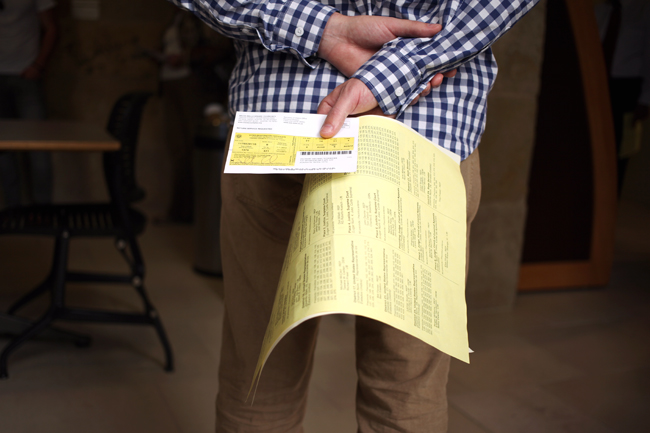Students who plan to vote in upcoming elections may find it more difficult than in previous years.
To cast a ballot, voters must present a valid form of photo ID along with their voter registration card, and the two documents must have matching names and addresses. This presents a problem for students who have received one form of ID in their hometown and another form after they moved to Austin.
“The ID law itself is the most restrictive in the United States,” Travis County clerk Dana DeBeauvoir said. “That’s not terrible on its face, but it is problematic to try to implement with no time, no plan and no money.”
The Texas Voter ID Law, passed in the 2011 legislative session and currently in effect, is being challenged by the U.S. Department of Justice for violating the Voting Rights Act. DeBeauvoir said the Texas Legislature should have given Texas counties an implementation period to prepare voters for the law.
“We should have been given at least a year to implement,” DeBeauvoir said. “We should have been given funds and educational materials to distribute deep into the community, including for all these groups that have concerns, like students, people with disabilities, married women … all of those groups have potential issues.”
Seven forms of identification are considered valid forms of photo ID including drivers licenses and passports. Voters can submit provisional ballots if they don’t have valid forms of ID when they vote. This allows voters six days after the election to return to the registrar and prove their identity.
The City of Austin is working to develop a plan to educate people about the law, DeBeauvoir said.
“We are putting together a program right now that is inviting social service agencies and civic agencies, like League of Women Voters, to participate with us to try to do outreach in the community,” DeBeauvoir said. “We’re asking for ideas from those groups about how to reach their clientele.”
Bruce Elfant, Travis County tax collector and assessor, said he and other Austin officials are putting together a one-page fact sheet, in multiple languages, which will be available to the public on the tax collector’s website.
“[DeBeauvoir] and I feel very strongly that we have the responsibility to implement [the law] so everybody understands what it means,” Elfant said. “We certainly want everybody who’s eligible to vote and who wants to vote to be able to vote.”
DeBeauvoir said she appreciates that Austin City Council members are discussing committing up to $50,000 to educate Travis County voters about the law but also said she is concerned that it is not enough money.
“[$50,000 is] not very much money to reach 600,000 registered voters,” DeBeauvoir said.
Twelve states have implemented similar voter ID laws, DeBeauvoir said.
Hook the Vote, a student organization that encourages students to vote, will begin educating students about the law.
“We understand that the Voter ID law will make voting more confusing and difficult for some students, so we’ve begun to reach out via social media and are planning on hosting deputization sessions so more students will be armed with the ability to register as voters,” said Julius Fountain, Hook the Vote assistant director.
Hook the Vote will work with various groups in Austin to hold on-campus information sessions about the law, Fountain said.
“We see it as imperative that all Longhorns have the ID they need to be engaged in the political process here in Texas,” Fountain said.












